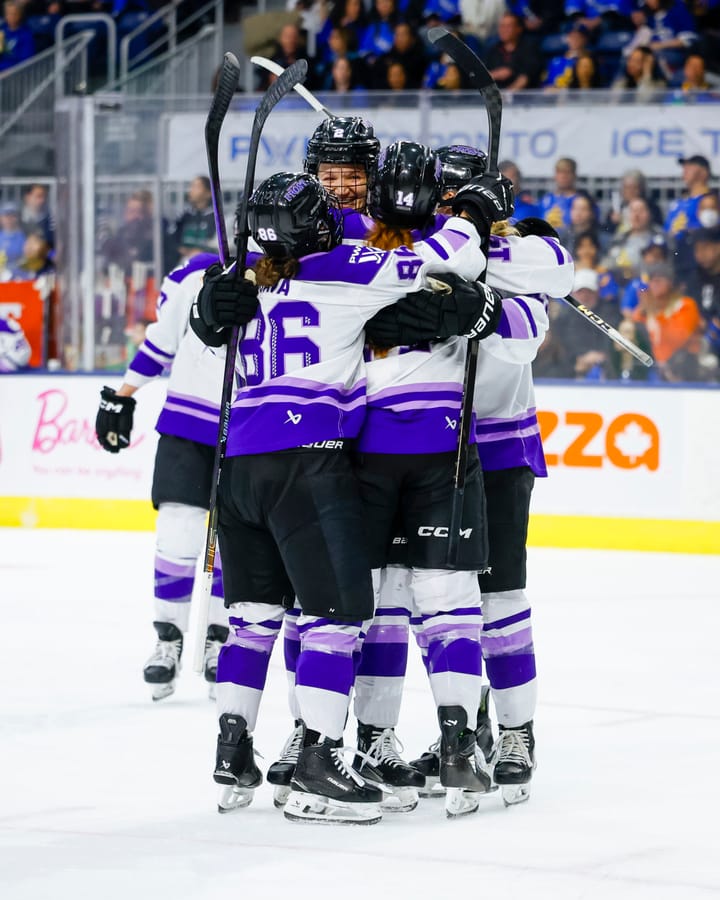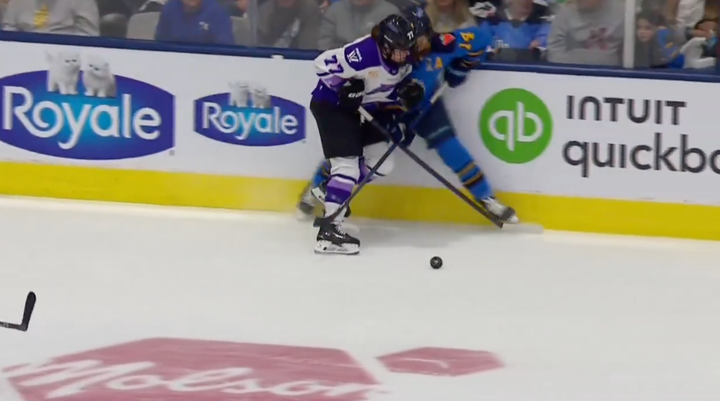How Team Sonnet’s power play cost them the Canada Secret Cup
Team Sonnet’s special teams play left much to be desired but much of that was out of their hands
It was brutal talking to Team Sonnet’s Sarah Nurse, Brianne Jenner, and Natalie Spooner after their loss in the Canada Secret Cup Final to Team Bauer on Sunday. The star forwards did their best to answer the media’s questions but their voices were often drowned out by the din of a Team Bauer celebration that had to be painful for them to listen to.
Nurse, Jenner, and Spooner are three of the best forwards on the planet — they also represent just a fraction of the offensive potential on Team Sonnet’s roster. Together, they finished the PWHPA’s Canadian showcase with a single power-play between them. And they certainly weren’t the only ones on Toronto who struggled to make an impact on the advantage.
Team Sonnet finished the group stage leading the pack in SF/GP (36.25) and even-strength goals (14) but finished the showcase with a 7.41 percent success rate on the power play. They scored two goals on 27 power-play opportunities and went 0-for-15 against Team Bauer, including an immensely costly 0-for-4 in the Canada Secret Cup Final.
Even those surface-level stats tell a story of a team that struggled to score after drawing penalties. On paper, it doesn’t make much sense. Team Sonnet had a stacked forward group and several defenders who excel at moving the puck — Ella Shelton and Jocelyn Larocque both finished the showcase with three assists.
“As the week’s gone on and our power play hasn’t been as successful — it’s something in the back of our mind, trying to figure out what are some plays we can do that can it get going,” Spooner told The Ice Garden after Sunday’s loss.
Unfortunately, Team Sonnet didn’t have much time to work on its power play during the tournament and certainly didn’t the time to do it before the puck was dropped on May 24. Beholden to Ontario’s COVID-19 protocols, they had precious little time together before the tournament — the same was true for Team Scotiabank.
Team Bauer, on the other hand, practiced together as much as five times a week. They finished with a showcase-best 25% success rate on the power play — 21.43% against Team Sonnet.
Practice may not make perfect, but it certainly makes a difference — especially on special teams.
“The hard part is, the power play is one of those things where the more you get reps in, the more you can practice, the better your power play is going to be,” Spooner explained. “You’re going to be moving the puck around a lot quicker, whipping it around, seeing the lanes, knowing each other’s tendencies. For us not to be able to have really any power play practice was pretty tough.
“We did our best,” Spooner continued. “We tried with the cards we were dealt. Obviously, we would have loved for a few more shots to go in but I think five-on-five we were able to make up for some of that. It’s just too bad that today we weren’t able to get a power-play goal.”
Spooner is right. At 5-on-5 Team Sonnet was a force to be reckoned with. They had three lines that could score and a solid energy line centered by CWHL veteran Kristen Richards with Maddie Field and Shannon Stewart on her wings. Even after allowing four even-strength goals in the final — one of which was an empty-netter — Team Sonnet finished with a +6 EV Goal Differential. For context, Team Bauer finished +2 and Team Scotiabank was -8.
Would things have gone differently in the Canadian Secret Cup Final if Team Sonnet had more time to practice together and work on their power play? We’ll never know, but one has to imagine it would have made a difference. It certainly feels that way in hindsight. But that was the hand that Toronto was dealt. And, all things considered, they played it very well.
Data tracked by TheirHockeyCounts.com.





Comments ()